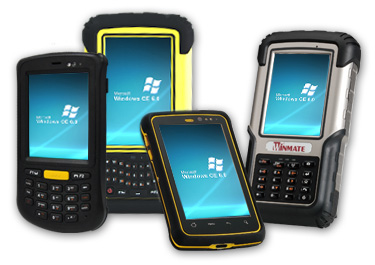
The team working at CSP towers are great people. They’re passionate, dedicated, and most of all, opinionated. Although we get along, we don’t always agree. This is one of those times.
A couple of days ago, Mike posted an article which basically said that Windows Phone isn’t dead, and we’ll have a lot more to see from them soon. This is a great attitude and I think that competition is never a bad thing. I’ve had a fair few Microsoft OS based phones in my time, and I’ve supported people who have used many of them in their day-to-day usage. To say I used to be familiar with them would be an understatement. However I do have to challenge the interpretation of Mike’s reaction to Microsoft CEO Satya Nadella’s statement. To recap, his comments were:
- Value phones: “We’ll bring value phone buyers the communications services they want”
- Business phones:“We’ll bring business customers the best management, security and productivity experiences they need”
- Flagships: “We’ll bring Windows fans the flagship devices they’ll love”

What it could also mean
Now maybe it’s me that would be expecting more clarity from someone who is at the head of a company, but I would have been expecting a generic statement saying ‘we’ll do more phones at all price points’ if that were the case, but Mr Nadella didn’t say that. Let me highlight the points which gave me pause.
“We’ll bring value phone buyers the communications services they want” – Communications services? A service is not a phone. That could quite easily mean programs like Lync/Skype/Skype for Business and Outlook.
“We’ll bring business customers the best management, security and productivity experiences they need” – Even though I write stuff, I’m by no means an expert on the English language. But since when did a new handset ever get described as a management, security and productivity experience? If I were a business customer hearing that, I’d be more inclined to think he were talking about using Microsoft’s Enterprise Mobility Suite, where it ties in mobile and application management along with data protection tools. This already exists… arguably, there’s no real reason why Microsoft couldn’t claim they already have these services and systems in place when Windows Phone 10 rolls out and still not have business centric phones to go along with the new platform.
“We’ll bring Windows fans the flagship devices they’ll love” – This is the part that is an unambiguous statement. I can get behind this.

Thoughts
Mike also said “What it does suggest, though, is that the future success of Windows Phone 10 lies on other OEMs developing devices.” – He’s got a point… but only if we make a few assumptions that I’ll try to refute.
- Windows phone needs to follow the android model of utilising many manufacturers instead of utilising just one or two and either following their old model where they utilised ODM’s rather than having manufacturer branded devices. Why? Whilst Apple is an anomaly that isn’t easily replicated, you could take a few principles from it and keep control of the stack. Focus on the content through the new Windows 10 development platforms and on making a few great phones that can be iconic.
- Windows phone needs to have a huge market share in the short term to be successful. Again, why? They already built up a following, why not continue to push into the enterprise space as they did before with Windows CE through to Windows Mobile 5? It worked for blackberry. At the same time, just make great phones that work for the tier they were designed for.
- Microsoft aren’t developing the rumoured Surface phone. If the services are already in place, then consumers will get the best of both worlds: a tightly integrated platform where they’ll be able to get ‘easily’ developed or ported apps. Tie that along with great hardware since Microsoft will be putting the experience they’ve learned from the Nokia acquifire/writedown and working on the Surface line of tablaptops. Business customers will get the aforementioned Microsoft services and they should work across most modern devices, whether they be Windows Phone based or not.
As the gallery above shows, Microsoft has had skin in the mobile game for some time, as Gears will attest to. There has always been a plan of some sorts. Whether that plan has lived up to Microsoft’s expectations is definitely open to debate, but they have helped shape the smartphone environment.
I’m not so sure that Microsoft doesn’t intend to avoid falling into the same trap as Google who are dependent on their relationship with manufacturers. It hurt them once already when Nokia was subsumed within the Redmond behemoth. Maybe they’re trying something new.
